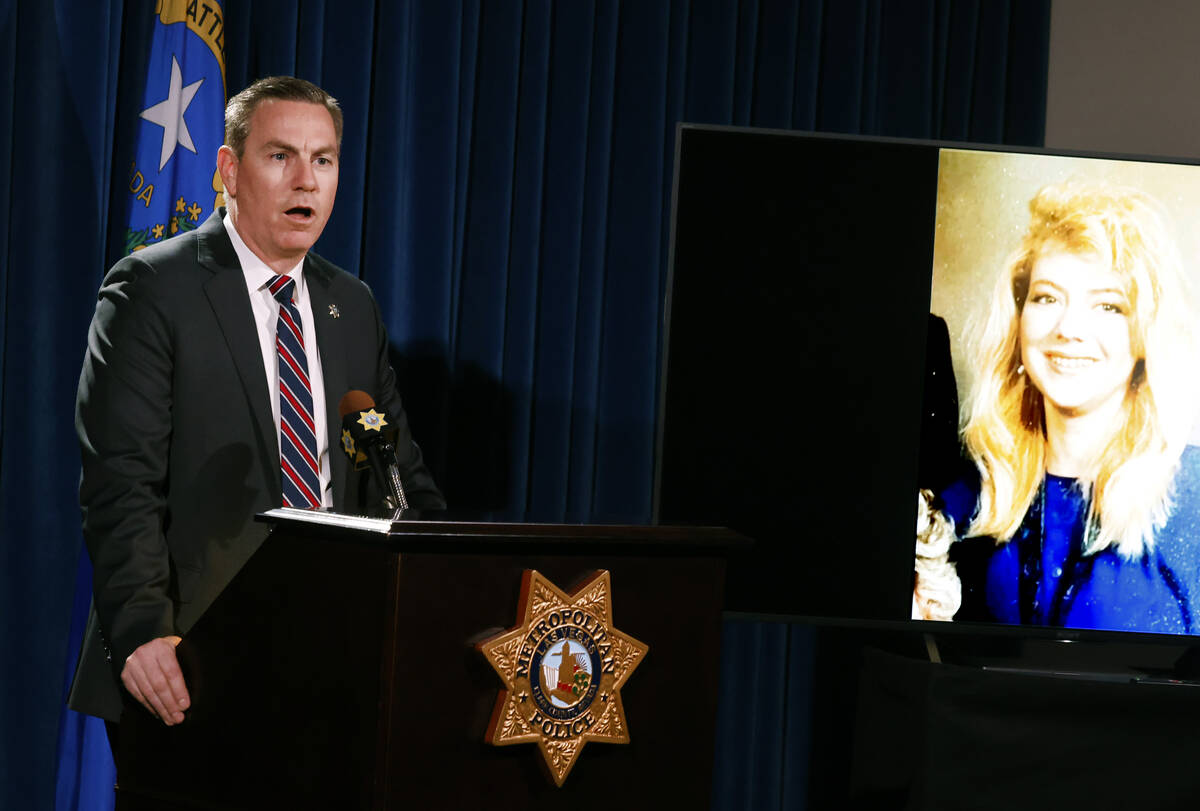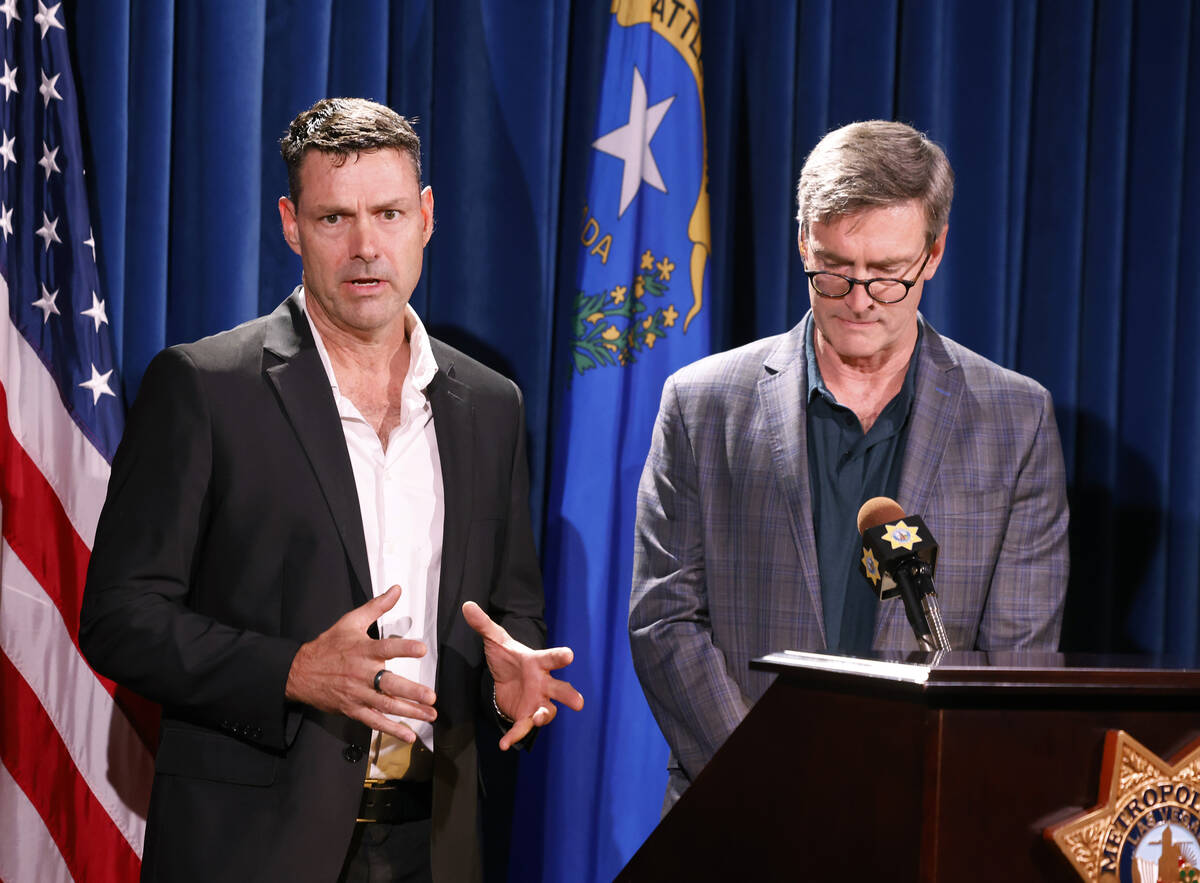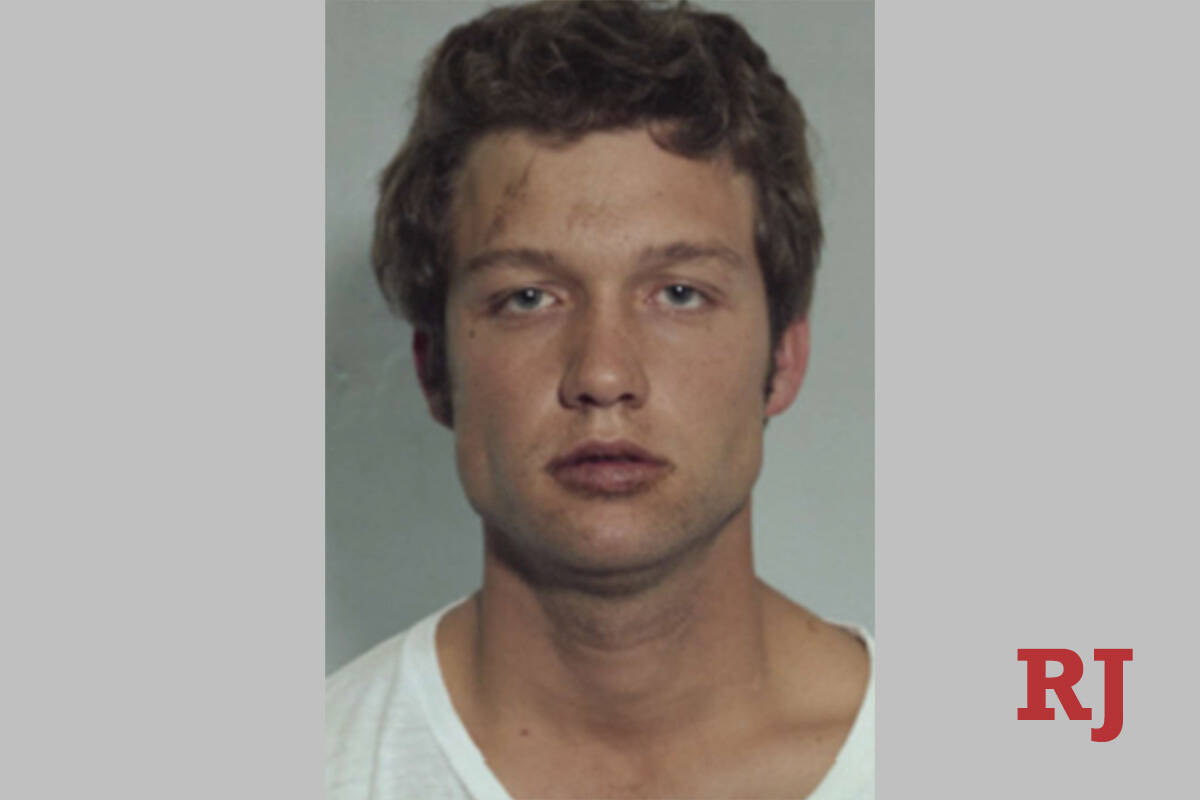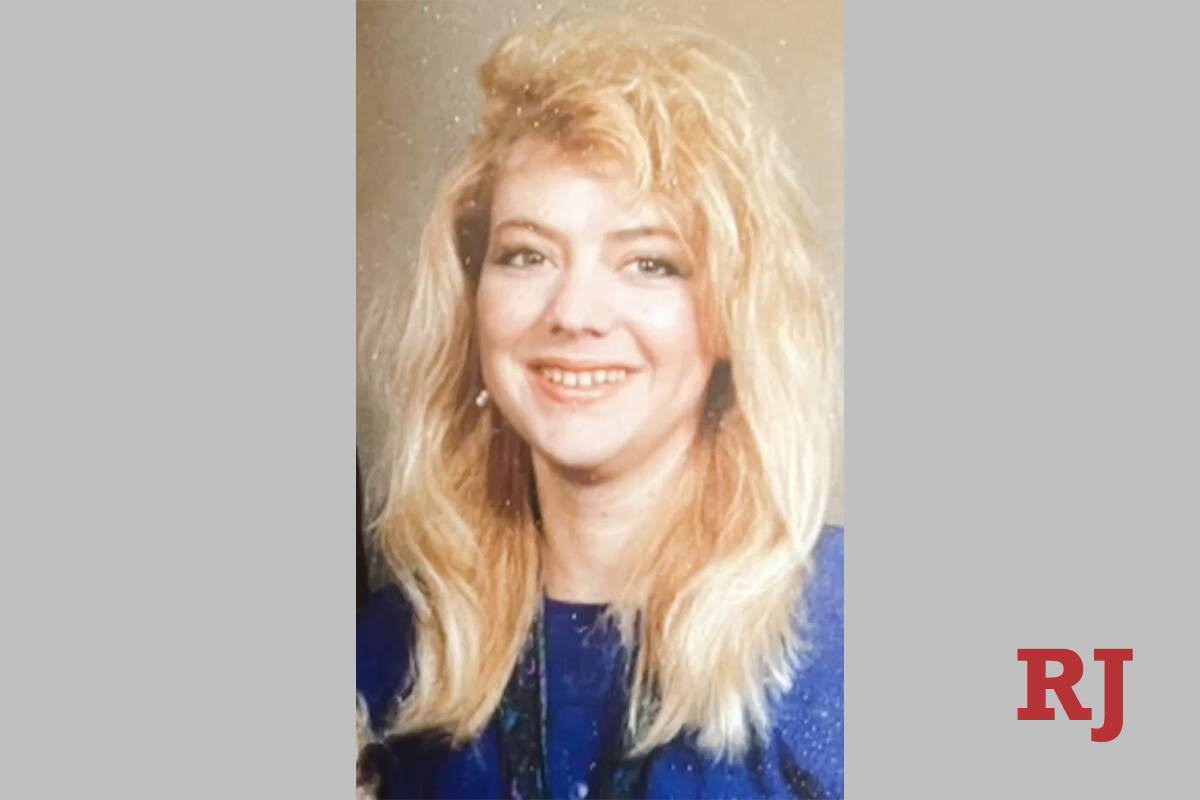Man who died from COVID tied to Las Vegas woman’s death in 1994
On Aug. 27, 1994, two men hiking by a wash near the entrance to Lake Mead National Recreation Area discovered the body of a woman later identified as 27-year-old Melonie White.
One day short of 30 years later, DNA evidence led police to a suspect in the cold case.
“The solving of her murder will help bring a measure of peace to her and all of us,” Jason White, Melonie White’s younger brother, said.
In a briefing Tuesday afternoon, Metropolitan Police Department homicide Lt. Jason Johansson said forensic genetic genealogy, a tool used in criminal investigations that harnesses consumer DNA data to identify suspects, had allowed police to identify Arthur Lavery as a suspect in Melonie White’s killing.
Lavery, who had one battery arrest in the Las Vegas area on his record but otherwise no criminal history, died in May 2021 from complications with COVID-19, according to Johansson.
Lavery never spent time behind bars for Melonie White’s death, but her younger brothers said that identifying him is enough.
“I actually don’t want to know much more about him,” Walter White, Melonie White’s other younger brother, said. “I’m not going to dig into this at all.”
Five women found dead near Lake Mead in the 1990s
Melonie White was last seen in the 1500 block of East Fremont Street the night of Aug. 26 arguing with a man in his late 30s to early 40s, the Review-Journal reported in Oct. 1994. Johansson said Tuesday that Lavery was 38 when Melonie White was killed.
Melonie White died from strangulation and blunt force trauma, according to Johansson.
In the three years following Melonie White’s death, four other women were found dead in the same 4-mile radius. In 1997, Metro Sgt. Bill Keeton told the Review-Journal, “we should be concerned about the number of the women found in this particular area.”
In the same article, Robert Keppel, a law enforcement veteran who investigated some of serial killer Ted Bundy’s crimes, said, “the odds of those victims not being related are 1,000 to one.”
Another of the five women was later identified as Margaret Hicks. The Review-Journal reported that both women were sex workers who had worked near Fremont Street.
In Tuesday’s briefing, Walter White said his older sister had been “at some crossroads in her life” at the time of her death and had been having trouble with jobs.
Metro did not respond to requests for comment on whether police are investigating whether Lavery might have been involved in any of the other four deaths. Police said he appeared to have grown up in Las Vegas and worked multiple jobs throughout the city.
An answer after 30 years of questions
The DNA testing that led to the identification of Lavery was funded by a donation from the Vegas Justice League, a group comprised of local volunteers who help solve cold cases by donating funds for the reevaluation of DNA evidence.
Justin Woo, a marketing and advertising entrepreneur, and Lydia Ansel, a DJ and electric violinist, founded the league as a way to have a positive impact on the city.
“Each person who joins the league basically funds a cold case,” Ansel said, but the league celebrates each one as a collective victory. Woo said that so far, the league has helped solve 41 cases.
Tuesday was the first time the two founders met the White family. “It brings chills to me every time to know that they get answers after so long,” Ansel said.
“I just want to say how grateful we are to the officers of the Las Vegas Metropolitan Police Department for never giving up on finding Melonie’s killer,” Jason White said. “We’re very, very grateful for the contributions of the Vegas Justice League, whose donation for DNA testing by police allowed the police to crack the case.”
Melonie White left behind a son, who is now 33 and healthy, happy and part of a family, Walter White said. But her death “shattered” her mother, Jason White said. “My mom was just absolutely destroyed.”
The combined work of Metro and the Vegas Justice League has changed the brothers’ lives, Jason White said. “I can’t tell you what that means to us.”
“She was a super kind heart,” Walter White said of his sister. “She was just a really nice person.”
Contact Estelle Atkinson at eatkinson@reviewjournal.com. Follow @estellelilym on X and @estelleatkinsonreports on Instagram.






















